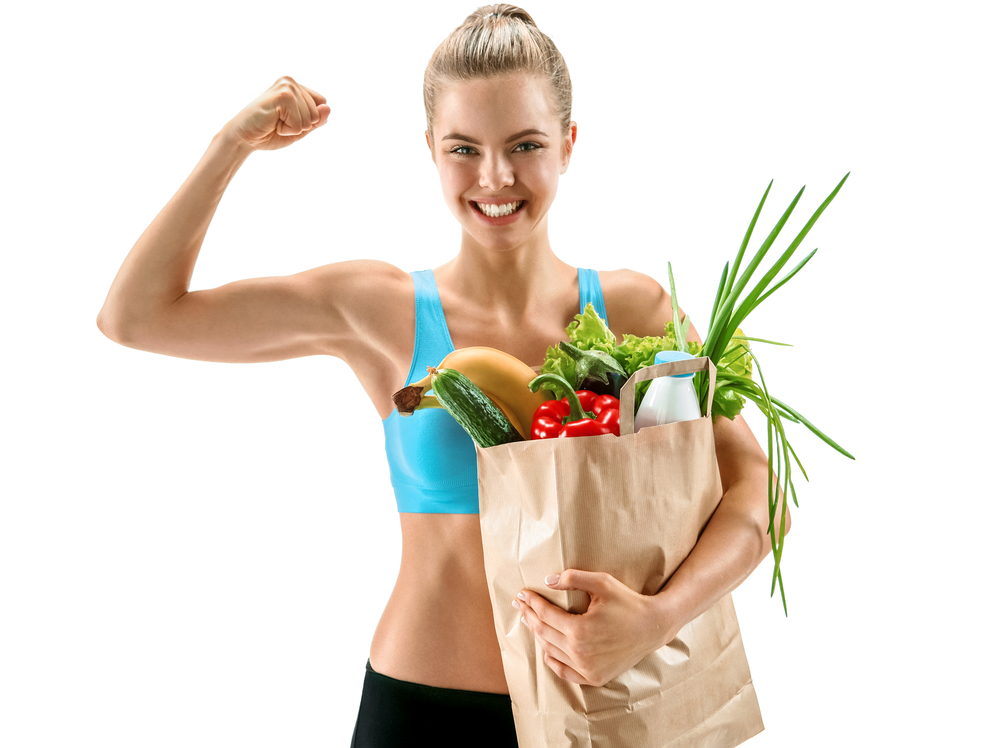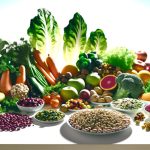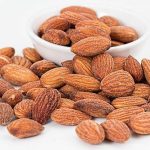Vegetarians need not struggle to find protein. There’s a plethora of plant-based proteins to meet all their needs with delicious, satisfying vegetarian fare.
Proteins make up most of the human body. Proteins are vital for maintaining a healthy diet. They provide the body with energy, help build muscle, and are necessary for the functioning of organs and tissues. You can find protein in lots of different foods, like meat, chicken, fish, eggs, milk, beans, nuts and seeds.
In general, animal-based protein foods have enough of all nine essential amino acids. Plant foods contain high levels of some amino acids and low levels of others.
Vegetarians and vegans can get similar benefits from plant-based proteins as from animal-based proteins.
Why including protein in your diet is important.
Protein is essential for the formation and upkeep of all cells in the body. It also provides these cells with energy so that you have sufficient energy to stay active. Protein is a macronutrient that is important for building muscle, maintaining muscle mass, stabilizing blood sugar levels, regulating hormones, and making you feel full.
Protein Sources for Vegetarians
According to NHANES data, both vegetarians and vegans are more likely to have protein inadequacy than meat-eaters, and vegetarian and vegan adults may require increased protein intake as they age.
It has been shown in studies that a diet with plenty of plants can be just as beneficial as a diet with animal protein.
Whey Protein
Whey protein is a source of protein that contains all of the essential amino acids. This food is also rich in branched-chain amino acids, which are vital for sustaining muscle tissue and necessary to replenish after exercise.
Whey protein is not suitable for people who do not eat dairy products or who prefer not to eat dairy products. The ideal whey protein would come from grass-fed cows, with a protein concentration of 90-95%. The lactose and fat content should be 0.5-1%.
Soy Protein
Soy protein is a type of protein that comes from soybeans. Soybeans are a type of legume that are very important in the diet of China. It is thought to have originated in Manchuria, and although it was discovered almost 3000 years ago, it took about 1000 years for people to realize its nutritional value.
Since the 1960s, soybean products, such as tofu, have become a staple in many American homes, especially those following vegan and vegetarian diets.
Soy-based foods are special because they do not have a taste, contain all nine essential amino acids in the right amounts, have plant-based estrogen properties, and come in many different “meat-like” foods.
It’s better to get organic soy products rather than non-organic ones.
Pea Protein
Pea protein is usually made from yellow peas. This food is free of gluten and dairy, nutritious, and unlikely to cause allergies.
Arginine and Branch-Chain Amino Acids (BCAAs) are good for you, and pea protein contains all 9 essential amino acids, but it is low in methionine, which is an essential amino acid that your body can’t make.
Rice Protein
Rice protein is a good source of protein, but brown and white rice are low in lysine and high in methionine.
The good news is beans are high in lysine and low in methionine. This means that rice and beans, eaten together, provide all of the essential amino acids needed to form a complete source of protein. Place the salsa, guacamole, and vegetables on top of the mixture to create a healthy, filling, and easy meal.
Chia Seed Protein
While Chia seeds are a very nutritious and healthy food, they are not a complete source of protein. Even though it is not a popular food, it is an excellent source of omega-3s and fiber. It is also rich in minerals like phosphorus, calcium, potassium, and magnesium.
Protein from chia seeds is a healthy addition to any smoothie.
Hemp Seed Protein
Hemp seed protein contains all of the essential amino acids, is rich in fatty acids, fiber, and essential minerals like iron and potassium.
You will not get high from hemp seeds, even though they come from the hemp plant, Cannabis sativa. The following text talks about the benefits of adding nuts to various foods. Although they may not be visually appealing, nuts are a healthy and delicious addition to yogurt, smoothies, and salads.
Food Sources High in Protein for Vegetarians
1. Eggs
Eggs are an excellent source of protein, containing all the essential amino acids your body needs. Each large egg contains 6 grams of protein. They are also rich in nutrients like vitamin D, Omega 3s, antioxidants, and choline. They are versatile, meaning they can be used for many different things, compact, meaning they take up little space, and you already know how to make them, meaning you don’t have to learn anything new.
2. Yogurt
Thicker Greek yogurt is especially high in protein, calcium, vitamin B12, and several key minerals. There are two types of yogurt- fat-free and regular. Fat-free is made from skim milk and regular is made from whole milk.
This product is not recommended for those with milk allergies (casein or whey), and is not suitable for dairy free or vegan diets. When picking out yogurt at the store, be mindful of how much sugar and other additives are in the commercial brands.
You can have a delicious breakfast or mid-day snack by trying plain, unsweetened yogurt with fresh berries, nuts and seeds.
2. Beans and Legumes
Beans and legumes are an excellent source of protein, high in fiber, and contain phytochemical properties that work as antioxidants. When prepared properly, they can have more potassium than a banana.
Beans are not only low in fat, but they are also nearly free of saturated fat. Although beans do not contain all of the amino acids needed to form a complete protein, they can be combined with rice to create a dish that contains all the necessary amino acids.
Beans and legumes that are popular include peanuts, lentils, black beans, kidney beans, cannellini beans, soybeans, and chickpeas.
Beans and legumes are a cheap source of protein with a lot of potential for creating healthy, delicious, plant-based meals.
3. Quinoa
Though Quinoa is technically an edible seed, it is classified as a whole grain. This food is high in fiber and a good source of magnesium, phosphate, thiamine, folate, and manganese. Unlike most plant-based proteins, it is a complete protein.
4. Nuts and Seeds
If you’re looking to add more protein to your diet, nuts and seeds are a healthy, plant-based option that make great snacks or additions to any dish.
While peanuts contain the most protein per serving, commercial peanut butters often contain added sugars, fats, and oils. Organic, whole peanut butter is the best option, but you can also try making it yourself. There are many other types of healthy, delicious nuts including almonds, cashews, walnuts, hazelnuts and Brazil nuts.
READ MORE: 7 Nuts For Your Heart
5. Fruits and Vegetables
Some vegetables and fruits contain more protein than others. In general, fresh fruits have less protein than vegetables. Even though they have a low protein content, they still provide some protein. One should eat protein-rich fruits such as guava, cherimoya, berries, cherries, peach, and banana.
Vegetables offer 5-6g of protein per 100 g serving. Some vegetables that are rich in protein are broccoli, spinach, asparagus, artichoke, potato, and sprouts. Sweet corn also contains a good amount of protein.
6. Mycoprotein
Mycoprotein is a plant protein with antimicrobial properties. Therefore, it is used to make meat alternatives. For example, mycoprotein can be used to make beef hamburgers, steaks, lamb chops, and fillet alternatives.
- Protein: Mycoprotein products provide 15–16g of protein per 100-gram portion.
- Fibre: Mycoprotein also contains 5–8 g of fibre.
Studies show mycoprotein has countless benefits. Additionally, it has minimal side effects. That makes it a perfect protein substitute for vegans.
7. Lentils
Lentils are a fantastic source of protein. This means that for every 100 g serving, there are 24 g of protein. Lentils are an excellent source of fibre, granting an extra bonus. They offer almost half the recommended daily intake in a 100 gram dose.
Lentils contain fibre that helps beneficial bacteria grow in the colon. These bacteria assist in maintaining a healthy gut environment. The findings of various studies suggest that incorporating lentils into one’s diet can help to reduce the risk of developing heart disease, diabetes, and obesity. It even inhibits forms of cancer.
Lentils are an excellent source of folate, manganese, and iron. They also contain antioxidants.
8. Yeast
A type of yeast called Saccharomyces cerevisiae can be found in a yellow powder or flake form. This yeast is known as nutritional yeast and is not active. This type of yeast is also a good source of minerals and B vitamins. Remember, however, that not all types of yeast are used for nutrition. Carefully read the label to identify.
A 100 gram portion of yeast contains nearly 50 grams of protein!
9. Seitan
Seitan is a common source of protein for vegetarians and vegans. The primary protein found in wheat is gluten. It is called wheat gluten and it provides 25g of protein per 100g. This makes it one of the best plant-based sources of protein. Seitan contains high levels of selenium, iron, calcium, and phosphorus.
10. Oats
Oats are a delicious, easy way to increase your protein intake. Protein content in oats varies, but on average, 100 grams of oats contains about 13 grams of protein.
The oats also contain a high amount of magnesium, zinc, phosphorus, and folate. They aren’t complete proteins. Oats may not contain all essential amino acids, but the quality of their protein is better than that of other regularly eaten cereals, such as rice and wheat.
11. Plant-Based Milk
There are two types of vegan milk, soy milk and almond milk. They’re excellent for vegans to eat. However, this is because they’re sourced entirely from plants. Plant-based milk is typically high in vitamins and minerals. So, it’s a great dairy milk alternative for people who are lactose intolerant.
A 100 g serving of plant-based milk contains about 3 g of protein. This food also contains a respectable amount of calcium, vitamin D, and vitamin B12. Plant-based milk has several benefits that are similar to those of regular milk.
12. Hemp and Chia
Hemp and chia are both seeds. Therefore, these deserve a special mention over other seeds. Their high-quality protein content warrants this.
The chia seed comes from a plant called Salvia that’s native to South America. There are many benefits to eating foods that are high in protein. Protein-rich foods often include various vitamins and minerals, making them a nutritious choice. A 100 g serving of them contains almost 17g of protein. The seeds contain high levels of iron, calcium, selenium, and magnesium. They also contain omega-3 fatty acids, antioxidants, and other beneficial plant chemicals.
The Cannabis sativa plant produces hemp seeds. There are 31.6 grams of protein in every 100 gram serving. Hemp seeds contain high levels of magnesium, iron, calcium, zinc, and selenium. Additionally, the ratio of omega-3 to omega-6 fatty acids is adequate for human health.
Hemp seeds may help with various conditions that involve inflammation or skin problems, such as premenstrual syndrome, menopause, and some skin diseases.
13. Wild Rice
Unlike white rice, which has its bran removed, wild rice does not. This is beneficial since bran includes fibre and a variety of vitamins and minerals. Wild rice is a great source of vegan protein.
A 100 gram portion of wild rice, when cooked, provides 4 grams of protein. Wild rice has more protein than other types of long-grain rice, such as brown rice and basmati.
Purium‘s Rice Bran Solubles are the most potent, nutrient-rich part of rice. They are amazing plant complexes that contain a wide variety of nutrients not found in other foods. Rice bran solubles is rich in antioxidants and phytonutrients, nutrients from plant sources. It’s also a great supply of essential vitamins and minerals, high-quality nutritional fiber, hypoallergenic protein, and omega-6 and omega-3 fatty acids.
14. Spirulina
Spirulina is a kind of blue-green algae. It is a form of seaweed. If you ate 100 grams of dried spirulina, you would be eating nearly 58 grams of protein!
Spirulina also contains high levels of magnesium, riboflavin, manganese, and potassium. In addition to containing sodium, chloride, and magnesium, it also has most other minerals required by the body, like fatty acids. The antioxidant, anti-inflammatory, and anticancer capabilities of phycocyanin found in spirulina have been backed by research. Ingesting spirulina has many health benefits according to various studies.
It has been shown that consuming spirulina can have a positive effect on your health in a number of ways. For example, it can help to boost your immune system, lower your blood pressure, and improve your blood sugar and cholesterol levels.
Purium’s Organic Spirulina Capsules are packed with vegetarian protein, marine omega fatty acids, chlorophyll, essential amino acids, antioxidants, and vitamins, Spirulina is nature’s ultimate wholefood multi-vitamin! Spirulina comes in a powder form too.
READ MORE: 14 Spirulina Benefits
Protein Deficiency
If you don’t consume enough protein for just one week, it will affect your muscles and joints.
If you don’t consume enough protein, you may eventually experience muscle loss, which can lead to reduced strength, difficulty maintaining balance, and a slower metabolism. Additionally, it may result in anemia, which occurs when there is a lack of red blood cells, resulting in fatigue.
Protein deficiency is the most common cause of kwashiorkor and marasmus. Kwashiorkor is a disorder that is caused by not having enough protein in your diet. It is characterized by swollen feet and legs, and an enlarged liver. Additionally, fatty infiltrations occur. The condition is caused by a lack of protein due to decreased protein intake.
If children do not get enough protein, they may get swollen ankles, legs, and arms, have trouble with their liver, have worse skin, and have a hard time growing.
While a lack of protein is uncommon in industrialized nations, not consuming enough protein may result in muscular atrophy and an increased risk of bone fractures.
Therefore, you need protein in your diet. Protein is the essential nutrient that helps our bodies grow and repair themselves. Whether you get your protein from meat or plants, it’s a key part of a healthy diet. Without it, we are nothing!
Conclusion
Many people think that vegans do not have enough protein in their diets, but this is not true. A vegan diet may be better for the body in some respects. There are many good sources of proteins out there. Some proteins are complete, and some have properties that protect against cancer and other damage. In addition, some have essential vitamins and minerals.
A vegan diet rich in protein is the best way to stay healthy and happy!









